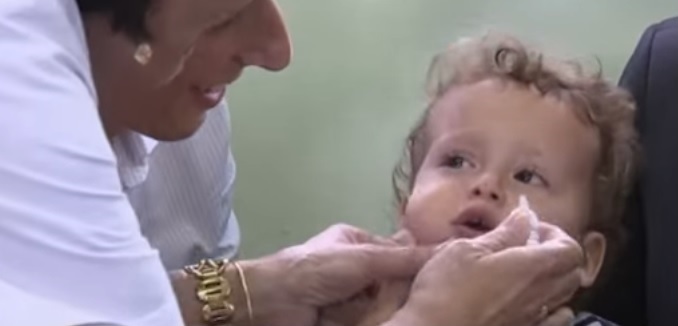Israeli scientists have developed a better way to detect polio outbreaks quickly in countries where the virus has effectively been eradicated, Ben-Gurion University announced in a statement Monday.
There are two ways to detect an outbreak in a country that is considered polio-free. One is to wait until there is a reported case of paralysis. The other is environmental surveillance (ES) of sewage treatment facilities, a method Israel utilized during a 2013 outbreak of polio in the country.
ES involves regularly checking sewage treatment plants for the presence of the wild polio virus to see if it has somehow been transferred into an otherwise polio-free country. Polio could, for example, be brought over from a neighboring country. There are still three nations in the world—Afghanistan, Pakistan, and Nigeria—where polio has not been eradicated, and large percentages of their populations have not been vaccinated.
Until now, ES was considered unreliable. However, in a paper published last week in Science Translational Medicine, Dr. Yakir Berchenko and his colleague developed a model for establishing the accuracy of ES, which is actually better than the alternative. Moreover, using the model, ES can be “detected earlier, the extent of the outbreak determined more quickly and accurately, and the termination of the outbreak declared more definitively,” according to the statement.
Though the data analyzed by BGU professors Berchenko and Itamar Grotto, as well as scientists from the Ministry of Health, the Gertner Institute, Tel Hashomer Hospital, and Tel Aviv University, was taken from the polio outbreak in Israel, the results apply globally.
[Photo: euronews (in English) / YouTube ]




